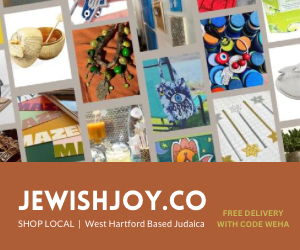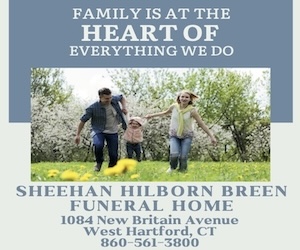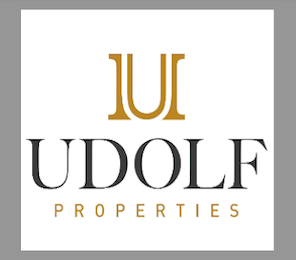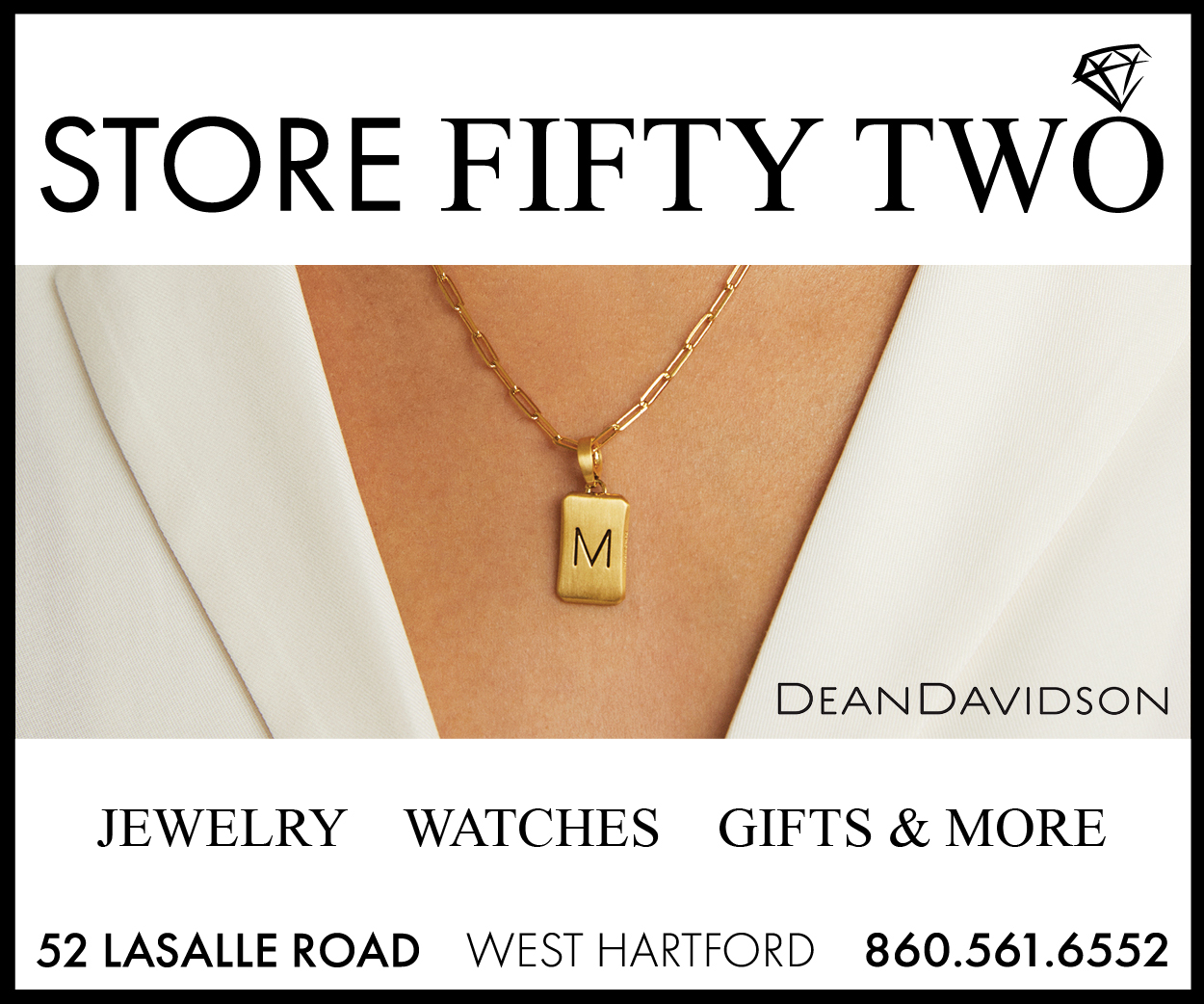“What is there in the land of Zion that there isn’t in the whole wide world? It is the land where everything you can wish for will happen; a land in which the words ‘No’ or ‘I can’t’ do not exist.”
FAIRFIELD – Dvir Dor and Keren Shemesh are among several of Connecticut’s Israeli Young Emissaries who have celebrated – or will celebrate – their B’not Mitzvah in their host state this year. For Dvir and Keren, who are serving in Eastern Fairfield County, the big day came on Shabbat, April 3 at Congregation Beth El in Fairfield. Here is an excerpt from the very moving D’var Torah they delivered before a packed congregation.
In the far-away continent where we were born and raised, the Jewish homeland, it was very easy for us to consider ourselves Jewish. Since everybody around us was Jewish, our language is Hebrew, the laws are considerate of the rules of the Halacha, and every Jewish holiday is felt in the streets, we’ve never had to face the question, “How do you practice your Judaism?” That is why we appreciate with all our heart the way people here make so much effort to achieve the beautiful things they’ve got. We look around us and we see the synagogues that are so active, with all ages, all kinds of people. You form a great community. Here, the words “Practice your Judaism” become meaningful.
Our Haftara tells the story of Yechezkel the prophet, who lived in the time of Galut Bavel, the time after the destruction of the First Temple in Jerusalem, when the Jewish nation was forced to live in Babylon. Yechezkel is being touched by God, and is shown a valley that is filled with dried bones. God leads Yechezkel by questioning him about the bones: Are they still alive? Whose bones are they? What is their destiny? Yechezkel is witnessing the revival of the bones, step by step. The bones start to have the form of a body and the last step is to put the spirit into them, make them human. God is telling Yechezkel that these bones are B’nai Israel, who have lost their hope for redemption; the nation is caught by its own despair. God commands Yechezkel to prophesize to the Jews and tell them that He shall help them and “open their graves,” bring them back to life and put them in the land of Israel.
The whole Haftarah is trying to show the way that the bones still have their spirit to go back to their roots and to the land of Israel. We would like to ask you: What is the spirit? And what are the bones? For us, the bones symbolize the body itself, a physical thing with no feelings, thoughts, and most of all, no belief. The spirit is what gives the bones its essence. It is the spirit who brings us all alive, who gives us the right to choose who we want to be, and what we choose to believe in, and is what makes every single person unique and different from the others. This is an individual spirit, but there is also a kind of spirit that unites a group of people with common beliefs, a group of people who choose to live according to similar values. We would like to mention one specific group: the Jews.
What makes you Jewish? Some would say just the fact that you were born to a Jewish mother is enough. Some say it is the 613 commandments of the Torah that we are obligated to do if we want to be called good Jews. Others believe that it is all about doing whatever you feel is good for you. And some choose to explore the traditional texts, discuss them over and over and “update” them to fit the modern world.
When we first got here, some of the people we’ve met looked at us quite shocked by the fact that we were not wearing long skirts and that they knew the prayers in Hebrew better than we did. “How come you’re from Israel and you don’t know all that?” we were asked pretty often. They thought that everybody in Israel should be a good Jew, but what does that even mean?
Throughout this year we had a lot of opportunities to think and reflect on those same questions, within ourselves, with each other, and with you. We have come to a conclusion. By following our own values, which are based on the Jewish written and unwritten traditions and history, we can become good Jews.
By dedicating some of our time to a goal that means a lot to us, something we can help in personally, we fulfill the value of tikkun olam, fixing the world. By giving resources to the needy, out of good will and free choice, we fulfill the value of tzedakah. By actively participating in the events that take place at our congregation as well as in the greater community, we fulfill the value of kehilah, community. By attending Hebrew school and later on Merkaz and adult-education classes, we fulfill the value of limud, constant learning. By gathering with our congregation, family, and friends and celebrating the Jewish holidays and Shabbat, we fulfill the value of masoret, tradition.
These all come to show how strong the Jewish spirit is; a communal spirit that we can all feel at this point. The spirit is what ties us together; it is the force that is needed to give life to the bones.
In the Haftarah we have a combination of two words, avdah tikvateinu, our hope is lost. These words are the base for the Israeli national anthem “HaTikvah.” Let us translate a short verse from it:
Kol od baLevav p’nima / Nefesh yehudi homiyah –
As long as in the heart, within / A Jewish soul still yearns,
Ul(e)fa’atei mizrach kadimah / Ain le’Zion tzofia –
And onward, towards the ends of the east / an eye still gazes toward Zion;
Od lo avdah tikvatein – Our hope is not yet lost.
Finally, we understand how lucky we are, and not only the two of us, but all of us in this room, because we have a state that is independent, and is there for us, with its gates open at all times. Our dried bones don’t have to be in this piece of land for our spirits to feel a part of it. The connection between Israel and the Jewish communities outside of it is one of the most important things that Israel has.
What is there in the land of Zion that there isn’t in the whole wide world? It is the land where everything you can wish for will happen; a land in which the words “No” or “I can’t” do not exist. There are people from all over the world, too many cultures to count, who live together in the same neighborhoods and become one, in spite of the differences. It’s the land that we call home; there we can find our family and friends, our loved ones. We hear Hebrew from the day we are born. And from the day we are born we are educated to be active and to persist with our beliefs. It is the only land where the younger ones can become leaders of their peers and later of the whole country. The young ones lead the younger ones in the youth movements and in the schools and set an example of giving and loving the land of Israel. It is a land that history connects with the future, and where until today we are living both, the history and the future.
It’s the only land where Jewish traditions can be seen. Shabbat, for example. All of the days of the week, starting on Sunday, are the same; but not on Saturday, our Shabbat. All of a sudden the country will wear its nice clothes; we will feel the holiday while walking on the street, smelling the challah, seeing the candles lit, and the empty streets, since everyone is in their house having a Shabbat feast.
This is why we did not and will never lose our hope. There is too much good to give up, there are too many people who died for this dream to come true. In “HaTikvah” it says that our hope is 2,000 years old, and here we have reached the year 2010, still dreaming for peace and a better future. And we remember that, in spite of all difficulties, as long as the Jewish spirit still connects us all, the Jewish nation, to each other and the land of Israel, this better future will come true.
By coming here this year, we thought we were going to teach, educate, and expose you to what we know. In all of our wildest dreams, we couldn’t imagine how much we were about to learn about ourselves, about our traditions, roots and even politics of our own country. We knew we were going to build a living bridge and we knew that there was a lot to do; so we were so happy to discover that all of you here were with us, ready to help in building this bridge together.
We are proud to stand here today, and be a part of the Jewish land and the Jewish nation, and most of all, your community. You inspire us and give us hope. With you by our sides, we know that the bridge we are building will be the strongest of all.








 Southern New England Jewish Ledger
Southern New England Jewish Ledger











Comments are closed.